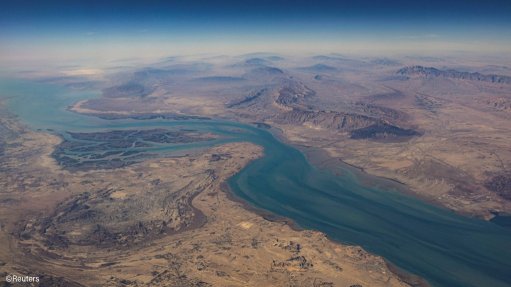Happytalism
How happy are you? You might rightly question the means of measurement to provide a coherent response. In case you need reminding, ‘happiness’ is defined as a sense of wellbeing, joy or contentment – a state of mind that occurs when people are successful, safe or fortunate.
As to your level of happiness, according to www.psychologytoday.com, researchers pursue five approaches to qualifying and quantifying happiness: biological; behavioural; implicit measures; others’ reports (such as asking other people to rate a person’s happiness); and self-reports (using multiple-item scales or a single question where respondents are asked about their level of happiness). The last mentioned is said to be by far the most common method researchers use to assess happiness.
So, how happy are you? While you contemplate your answer, do you know what day the happiest day of the year is? It is said to be December 20 in the northern hemisphere and June 20 in the southern hemisphere. The happiest day is attributed to the summer solstice, which occurs when one of Earth’s poles has its maximum tilt towards the sun. This happens twice yearly – once in each hemisphere. Would you know what day the International Day of Happiness is? It is March 20, which may explain why the ‘World Happiness Reportʼ is published on this day. Or could the reason be political, as it is three months after the southern hemisphere’s happiest day and three months before the northern hemisphere’s happiest day?
In case you were wondering, there is a World Happiness Foundation, said to be the most comprehensive global platform hosting and amplifying leaders, institutions and initiatives committed to realising a world where all people are free, conscious and happy. The foundation conceptualised the term ‘happytalism’, which proposes a new paradigm that shifts the focus away from solely economic growth and material wealth to prioritising human happiness and wellbeing as the primary measures of success. It envisions a world where the economy, education, politics and sustainability are all aligned to foster a positive and fulfilling lifestyle for everyone.
This concept diverges from traditional capitalism, which often prioritises profit and material accumulation above all else. The concept is built around four key pillars: economy (redefining economic success to include wellbeing and sustainability, not just profit and GDP); education (focusing on holistic education that fosters emotional intelligence, mindfulness and personal development alongside traditional academic learning); politics (developing political systems that prioritise citizensʼ wellbeing and social progress, rather than solely focusing on economic growth); and sustainability (ensuring environmental sustainability as a fundamental aspect of a happy and thriving society). Does this measure make you happier?
By now, you would have deduced that this week’s column is not on a breaking news topic. But hey, in the words of Bobby McFerrin: “Don’t worry, be happy.”
In the ‘2025 World Happiness Report’ (https://www.worldhappiness.report/), South Africa ranked 95th out of 147 countries. Not a happy state. This ranking is lower than that of many other nations, including African nations such as Algeria and Libya. This year’s report considers factors such as social support, GDP per capita, healthy life expectancy, freedom, generosity and corruption perceptions.
Concerning ‘social support’, the report highlights some positive aspects for the country, such as willingness to help strangers. However, there’s room for improvement in fostering a more engaged, community-focused society. The report also covers ‘freedom and generosity’, stating that these factors play a significant role in supporting life evaluations and positive emotions.
This aligns with the focus of the report – the impact of caring and sharing on people’s happiness. “Like ‘mercy’ in Shakespeare’s Merchant of Venice, caring is ‘twice-blessed’ – it blesses those who give and those who receive.”
I leave you with a note from the report: “South Africa had fewer deaths of despair than Grenada. However, the level of deaths of despair in South Africa was not very comparable, because we had to adjust the figures for South Africa. Our measure of suicides generally includes deaths. However, due to a break in the series for South Africa, we dropped deaths due to undetermined intent for South Africa, which mechanically reduces their levels of deaths.”
Article Enquiry
Email Article
Save Article
Feedback
To advertise email advertising@creamermedia.co.za or click here
Announcements
What's On
Subscribe to improve your user experience...
Option 1 (equivalent of R125 a month):
Receive a weekly copy of Creamer Media's Engineering News & Mining Weekly magazine
(print copy for those in South Africa and e-magazine for those outside of South Africa)
Receive daily email newsletters
Access to full search results
Access archive of magazine back copies
Access to Projects in Progress
Access to ONE Research Report of your choice in PDF format
Option 2 (equivalent of R375 a month):
All benefits from Option 1
PLUS
Access to Creamer Media's Research Channel Africa for ALL Research Reports, in PDF format, on various industrial and mining sectors
including Electricity; Water; Energy Transition; Hydrogen; Roads, Rail and Ports; Coal; Gold; Platinum; Battery Metals; etc.
Already a subscriber?
Forgotten your password?
Receive weekly copy of Creamer Media's Engineering News & Mining Weekly magazine (print copy for those in South Africa and e-magazine for those outside of South Africa)
➕
Recieve daily email newsletters
➕
Access to full search results
➕
Access archive of magazine back copies
➕
Access to Projects in Progress
➕
Access to ONE Research Report of your choice in PDF format
RESEARCH CHANNEL AFRICA
R4500 (equivalent of R375 a month)
SUBSCRIBEAll benefits from Option 1
➕
Access to Creamer Media's Research Channel Africa for ALL Research Reports on various industrial and mining sectors, in PDF format, including on:
Electricity
➕
Water
➕
Energy Transition
➕
Hydrogen
➕
Roads, Rail and Ports
➕
Coal
➕
Gold
➕
Platinum
➕
Battery Metals
➕
etc.
Receive all benefits from Option 1 or Option 2 delivered to numerous people at your company
➕
Multiple User names and Passwords for simultaneous log-ins
➕
Intranet integration access to all in your organisation

















